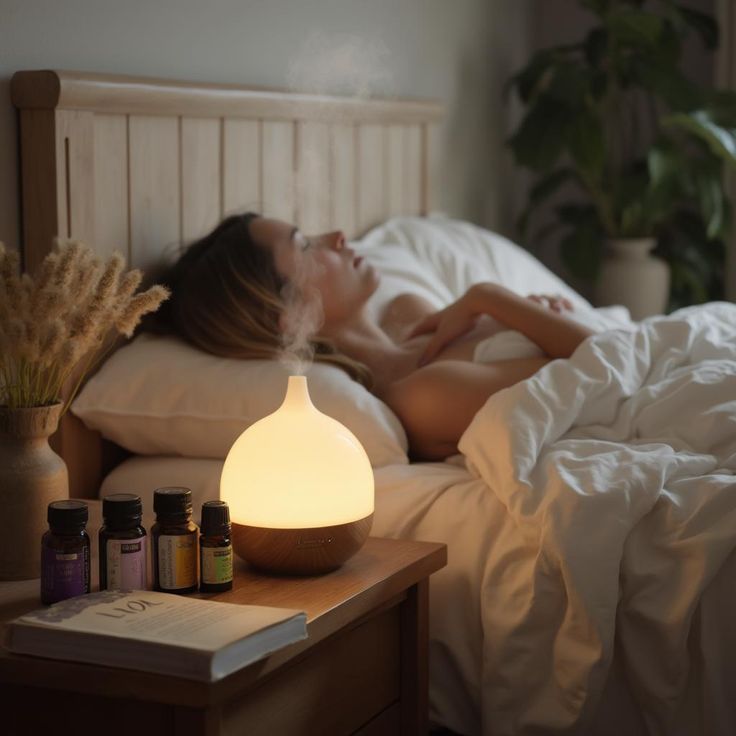The Science of Sleep: How to Improve Sleep Naturally
We all know the feeling — waking up groggy, sluggish, and irritated after a restless night. In today’s fast-paced, hyper-connected world, quality sleep has become a luxury instead of a natural rhythm. But science tells us that sleep isn’t optional — it’s as essential as food and water.
Poor sleep doesn’t just lead to fatigue. It impacts your memory, hormones, immunity, mood, digestion, and even weight. The good news? You can improve your sleep naturally, without pills or artificial aids — by simply understanding the science of your body’s rhythms.
Let’s explore how sleep works and how you can fix it naturally, from the inside out.
How Sleep Works: The Science Behind It
Your body operates on a circadian rhythm — a 24-hour internal clock that tells you when to sleep, wake, eat, and even heal. This rhythm is heavily influenced by:
Light exposure (sunlight or screen light)
Hormones like melatonin and cortisol
Food and activity timing
🔬 During deep sleep, your body:
Repairs tissues and builds muscle
Balances hormones like insulin, ghrelin, and cortisol
Flushes out toxins from the brain (via the glymphatic system)
Boosts memory and emotional processing
That’s why quality sleep isn’t just rest — it’s your body’s most powerful detox and healing process.
7 Natural Ways to Improve Your Sleep
🌞 1. Get Morning Sunlight (Within 1 Hour of Waking)
Why it works: Sunlight triggers melatonin suppression and resets your internal clock. Getting 10–15 minutes of sunlight early in the day regulates your sleep-wake cycle.
☀️ Morning light = better melatonin production at night.
📵 2. Reduce Blue Light After Sunset
Why it works: Screens emit blue light that suppresses melatonin — the hormone that makes you sleepy.
What to do:
Avoid screens 1 hour before bed
Use “Night Shift” or blue-light blocking filters
Opt for warm lighting in the evening
☕ 3. Watch Your Caffeine and Sugar
Caffeine has a half-life of 5–6 hours, meaning that your 4 PM coffee can keep you awake at 10 PM. Sugar spikes also disrupt deep sleep cycles.
Tips:
Avoid caffeine after 2 PM
Choose herbal teas like chamomile, ashwagandha, or tulsi
Keep dinners light and early

We will contact
🧘♀️ 4. Calm the Nervous System Before Bed
A stressed body can’t fall asleep easily. Try:
Deep breathing (4-7-8 technique)
Gentle stretches or yoga nidra
Journaling or gratitude writing
Listening to calming music or white noise
🧘 Even 10 minutes of relaxation can lower cortisol and help you drift off naturally.
🌿 5. Add Sleep-Friendly Foods to Your Dinner
Tryptophan-rich foods help your body produce melatonin. These include:
Warm milk or turmeric milk
Almonds, walnuts
Bananas
Whole grains (like millets, oats)
🛏️ 6. Create a Consistent Sleep Routine
Your brain loves patterns. Going to bed and waking up at the same time every day (even weekends!) helps regulate your internal clock.
Create a routine:
Dim lights 1 hour before sleep
Brush teeth, wash face, read a book — same sequence every night
Sleep in a cool, dark, quiet room
🧴 7. Use Natural Oils or Aromatherapy
Scents like lavender, vetiver, and sandalwood have been proven to relax the mind and body.
Try this:
Add a few drops of lavender essential oil on your pillow
Use a diffuser or roll-on behind your ears
Massage feet with cold-pressed sesame or coconut oil before bed (an Ayurvedic ritual)

Conclusion
You don’t need sleeping pills or fancy gadgets to get good rest. All you need is a little understanding of how your body works and a willingness to create space for natural rhythms.
Because true healing doesn’t start with medicine — it starts with sleep.






You must be logged in to post a comment.